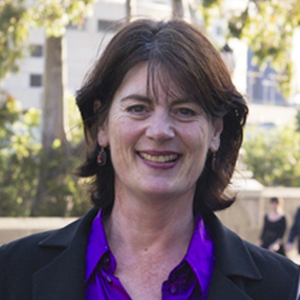A lack of legal aid funding is seeing thousands of people facing criminal charges across Australia denied legal representation unless they are likely to go to prison.

Research by the Law Council of Australia (LCA) found that in every state except NSW current guidelines for legal aid in magistrates’ and local courts preclude legal aid being granted unless there is a high chance the defendant will be imprisoned, or they suffer from a disability or disadvantage that prevents self representation.
Neal said the guidelines were vastly removed from previous minimum standards for legal aid that only required jail to be an “available penalty”.
In NSW, this is still the case: grants are made to anyone facing a criminal charge who meets the means test. However, the Legal Aid NSW board has already proposed to move in the same direction as other legal aid commissions in order to stay within its tightening budget.
In a law debate on Monday (August 26), Federal Attorney-General Mark Dreyfus said he was committed to working towards restoring the Commonwealth’s funding commitment to 50 per cent – the level it used to contribute and what the LCA is calling for a return to.
When pressed by Fiona McLeod, head of the Victorian Bar, on whether Labor would commit to restoring federal funding to 50 per cent if re-elected, Dreyfus gave no assurances.
“What is precisely the right number or percentage of expenditure is going to depend; we need states to pull their weight as well,” said Dreyfus.
Shadow Attorney-General George Brandis QC, Dreyfus’ opponent in the debate, likewise offered no concrete idea: “There’s no magic about a 50/50 relativity,” he said.
McLeod acknowledged the “significant funding” provided by the AG in recent months to community legal centres (CLCs) but said she was deeply concerned at the “apparent paralysis” within state and federal governments to tackle the crisis in legal aid funding.
“If neither are prepared to accept that responsibility and fact that we need to renegotiate the whole basis by which federal and state governments fund legal aid across the board then we’re in strife,” she said.
Neal said the expanded power of magistrates’ courts, since 1990, to deal with more serious offences meant increased funding was critical.
“There’s sort of a double whammy happening here: the offences that these people might be confronting have become more serious, but the amount of the legal aid [and whether they qualify for it] has been slashed,” said Neal.
“I would’ve hoped for bi-partisan support to a return to at least a 50 per cent share from the Federal Government.”
The problem with people defending themself, said McLeod, is that they don't know the law and are usually too stressed to act in their best interests.
"The system turns into a sausage machine; there are errors in sentencing, delays and demands on court resources, and it can create a lifelong stigma and affect people's employment opportunities for life,” said McLeod.
Impossible choices
Brandis’ suggestion that case work should be prioritised over advocacy work for funding was swiftly criticised.
“That’s like saying you shouldn't ask doctors what patients need by way of healthcare because you don't want to hear there are sick people,” said McLeod, adding that the idea was a distraction from the main issue of properly funding the justice system.
Neal, likewise, said the dichotomy was too simple.
“The advocacy work, for instance in the consumer credit area, has reaped absolutely magnificent reforms to protect people from predatory lending,” he said
“It’s absolutely rational to say ‘if there’s a systemic problem, we need legislative change to deal with that’.”
McLeod said it is practically impossible to prioritise which cases, for example criminal or family matters, are more deserving of legal aid.
“You’re asking us to say basically you should fund cancers versus heart attacks. It’s an impossible choice and legal aid commissions are unfairly being asked that,” she said.
The Law Institute of Victoria and the Victorian Bar Association have launched an online petition, which has attracted 1984 signatures, asking both levels of government to promise to increase funding for legal aid.
“We, the legal profession, have to keep telling them what’s going on; the system is broken and needs to be fixed,” said Neal.